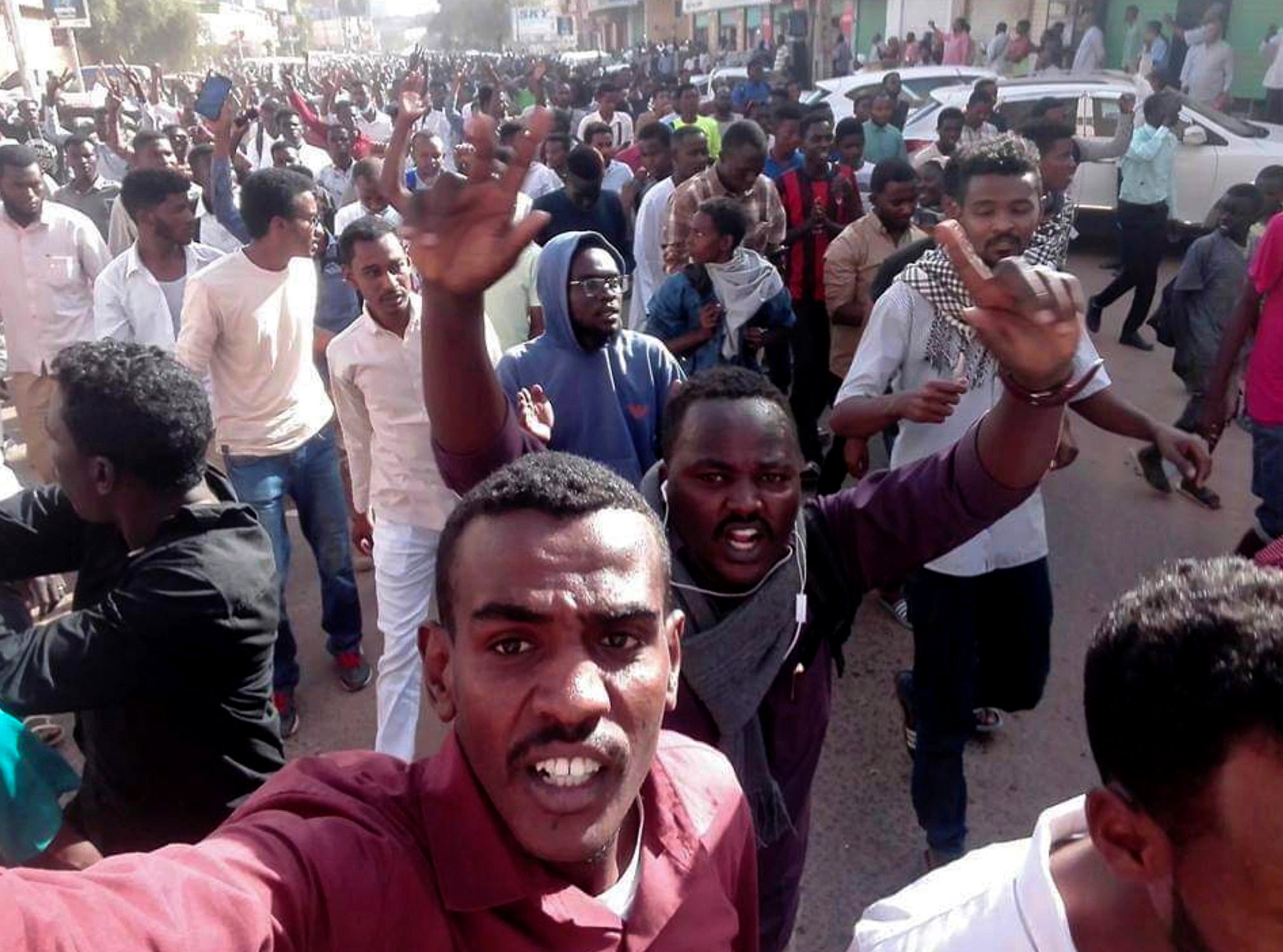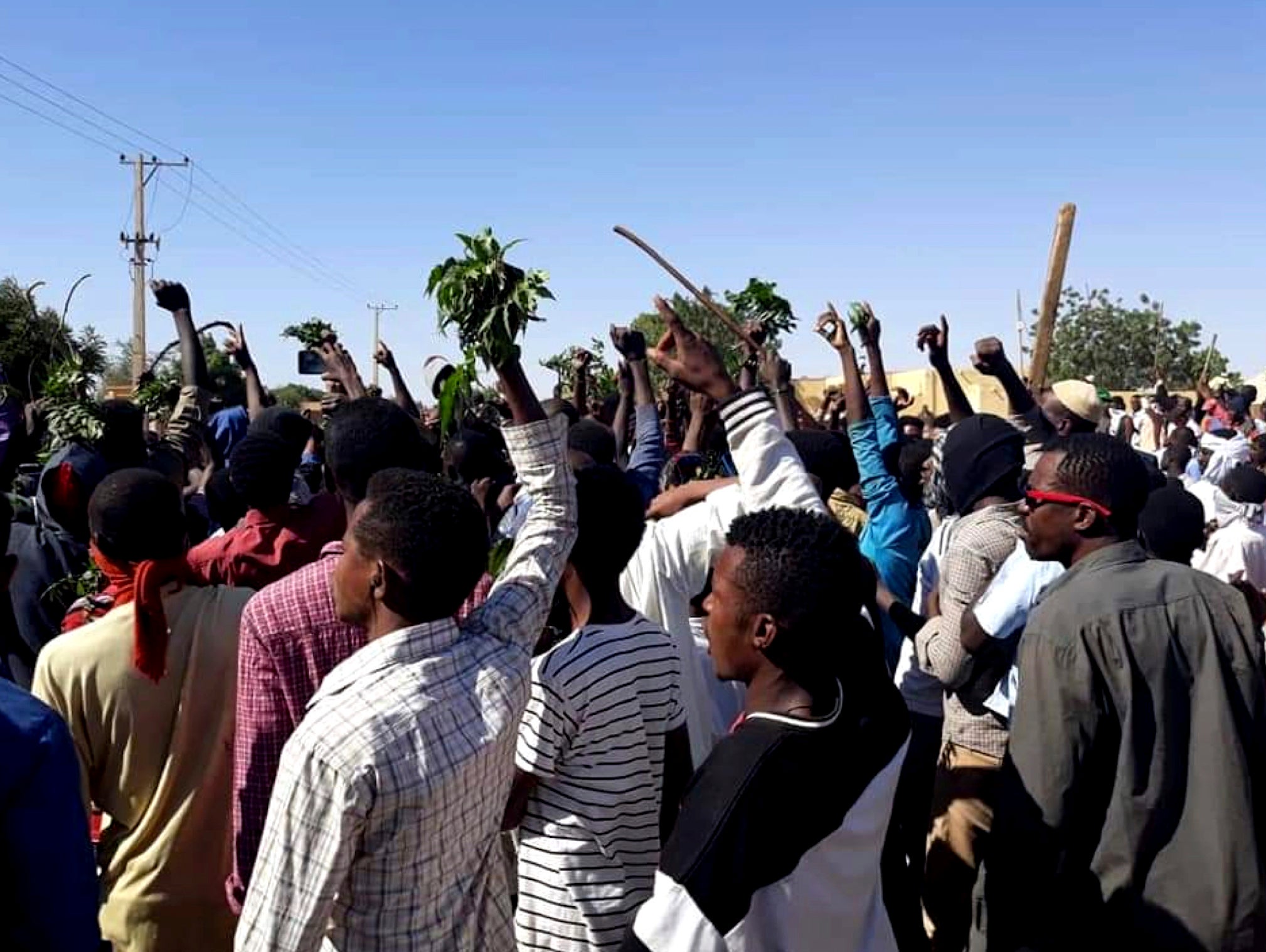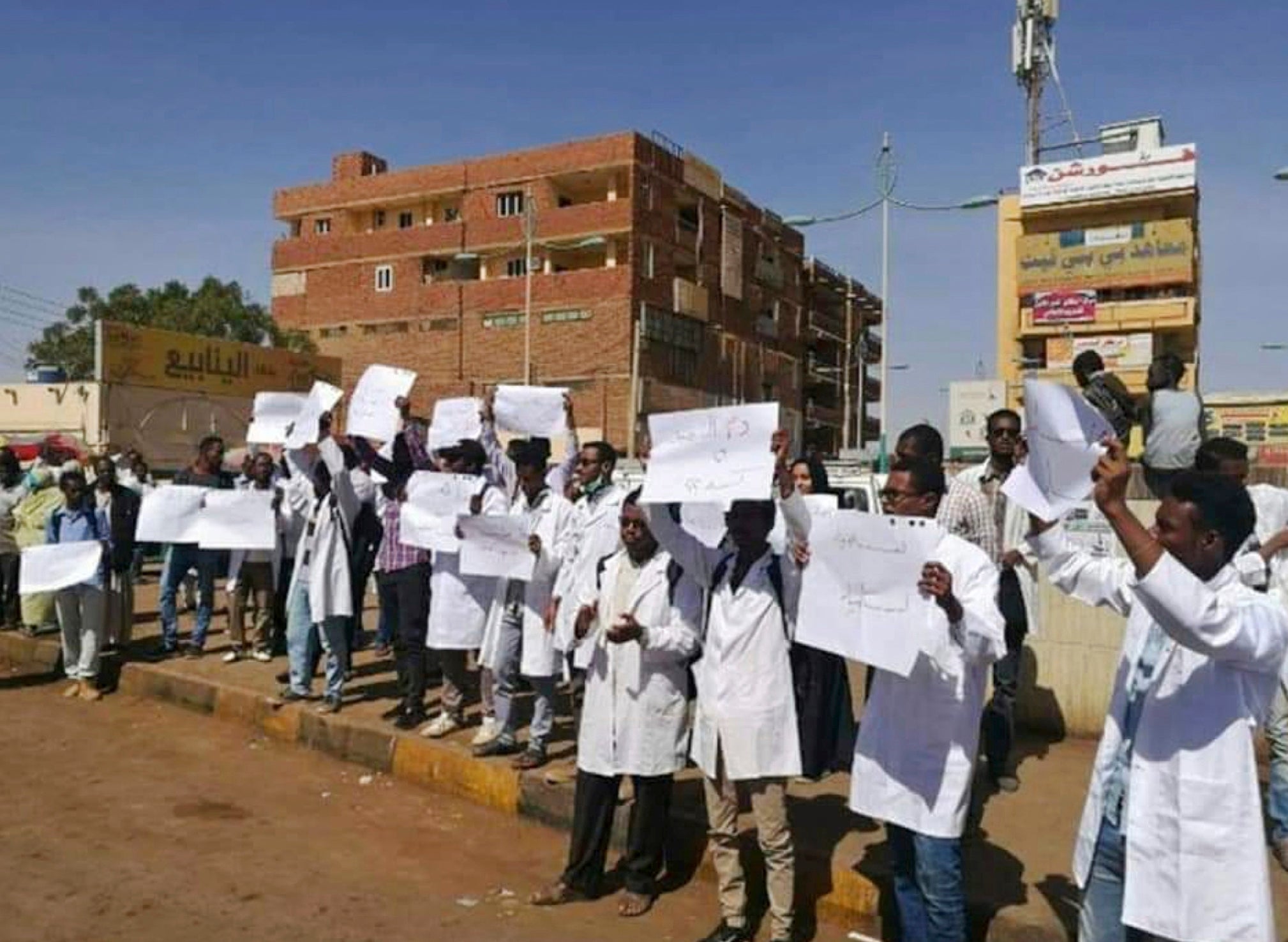Anger at price of bread explodes into nationwide protests in Sudan
'The people want the downfall of the regime'

Your support helps us to tell the story
From reproductive rights to climate change to Big Tech, The Independent is on the ground when the story is developing. Whether it's investigating the financials of Elon Musk's pro-Trump PAC or producing our latest documentary, 'The A Word', which shines a light on the American women fighting for reproductive rights, we know how important it is to parse out the facts from the messaging.
At such a critical moment in US history, we need reporters on the ground. Your donation allows us to keep sending journalists to speak to both sides of the story.
The Independent is trusted by Americans across the entire political spectrum. And unlike many other quality news outlets, we choose not to lock Americans out of our reporting and analysis with paywalls. We believe quality journalism should be available to everyone, paid for by those who can afford it.
Your support makes all the difference.Protests in Sudan that began last week over bread prices have mushroomed into a nationwide protests against the nearly three-decade rule regime of Omar al-Bashir, the country’s 76-year-old autocrat.
At least 22 people have reportedly died in the protests, which began 19 December in the northern Nile River city of Atbara, but have since spread to the capital, Khartoum, 350 kilometres to the southwest, and across the country.
Originally triggered by a government decision that tripled bread prices to the equivalent of 5p per loaf, the protests have grown into one of the biggest challenges to Mr Bashir’s long rule, with protesters taking to the streets and heckling police after a football match on Sunday.
“The people want the downfall of the regime,” some of the protesters are chanting, resurrecting the signature slogan of the 2011 Arab Spring uprisings.
“Down, down with military rule,” they demand. "We either live free or die like real men."

Protesters have burned down offices of Mr Bashir’s ruling National Congress Party and government vehicles and clashed with anti-riot police, local media reported.
“’The scale of the protests is unprecedented,” Shawgi Mahadi Mustafa, a Sudanese journalist based in Qatar, told The Independent. “This time it is coming from outside from Khartoum, and that’s why the security failed to contain the protests from the beginning.”
Sudan, a vast mostly desert nation of 40 million people that straddles sub-Saharan Africa, the Horn of Africa and the Arab world, is rich in oil and other natural resources but suffers from crushing poverty, income disparity, and perceptions of widespread corruption by the ruling elite. Mr Bashir’s 16 December visit to Syrian dictator Bashar al-Assad, who is widely despised throughout the Sunni Arab world, intensified protesters' anger, experts said.
Sudanese government spokesman and minister of information Bushara Juma has said the protesters have a right to demonstrate peacefully against rising prices but warned that “subversive activity targeting public institutions and properties” as well as anti-government slogans would not be tolerated. It has also accused Israel of being behind the protests.
Resentment against the Bashir government has been rising, in part due to perceived economic mismanagement, failing public health and education systems, and corruption at the hands of the ruling party and its cronies, who have over the years seized control of both public institutions and the private sector, while driving the intelligentsia abroad.
“The government makes economic decisions, at the party level, for short-term success and for the sake of the political survival of the ruling party,” said Moez Ali, a Sudanese blogger and political commentator. “What most people fail to understand is that there is no economic crisis in Sudan, it's a political crisis.”

Adding to the anger is what Mr Ali called “the unlimited power of the intelligence services” that have turned the country into what international human rights organisations have described as a police state. While protests in Khartoum in 2011 and 2013 were quickly crushed, the current wave began outside the capital where the dreaded mukhabarat has a lighter presence.
Mr Mustafa said the country’s main political parties also had little role in egging on the protesters, who appeared to take to the streets spontaneously via calls on social media in a pattern seen repeatedly throughout the world, spreading word and video of their actions online to bypass censorship by state television. “There are just many people participating as individuals,” he said.
The government appears to be rallying its supporters. Qatar and Bahrain have voiced support for Mr Bashir, who in recent years has improved ties with Arabian Peninsula states. The Sudanese army issued a statement on Monday pledging support. On Saturday, authorities reportedly arrested 14 opposition figures associated with the protests.
More ominous are reports that Mr Bashir has begun to deploy against protesters the infamous Janjaweed tribal militias used during the country’s civil war against breakaway southern regions and anti-government demonstrations in 2013.
Join our commenting forum
Join thought-provoking conversations, follow other Independent readers and see their replies
Comments